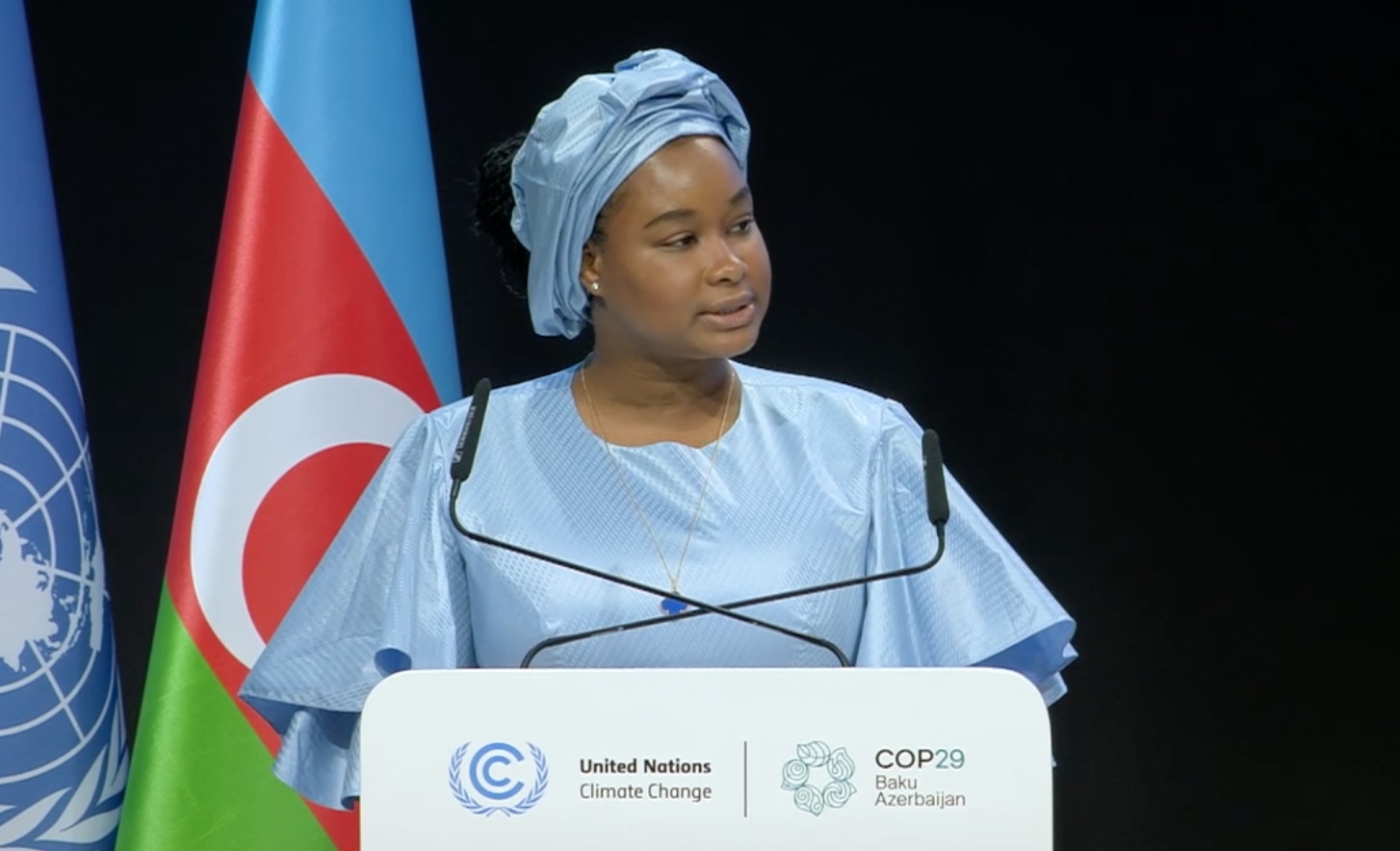BAKU, Azerbaijan, November 19. Guinea plans to reach 80 percent of its electricity production from renewable sources by 2030, the country's Minister of Environment and Sustainable Development Djami Diallo said in the national statement at the COP29 summit today, Trend reports.
"Despite its small contribution to global greenhouse gas emissions, Guinea in 2024 was not immune to the negative impacts of climate change. The floods and droughts that affected the country this year highlight the urgency of taking ambitious, coordinated, and inclusive actions to curb temperature rise and increase resilience to climate threats," she explained.
According to her, Guinea has set several strategic goals for 2030, including achieving 80 percent of electricity production from hydro and solar sources, reducing per capita firewood consumption by 50 percent, curbing deforestation and land degradation, and protecting 30 percent of land and marine areas.
"Moreover, Guinea plans to create a local voluntary carbon credit market in the mining sector, which will attract private investments for climate change mitigation, water resource conservation, and the promotion of the blue economy," the minister pointed out.
She also emphasized that the country recently announced two major initiatives that will significantly accelerate the achievement of climate goals and strengthen the global fight for sustainable climate. Firstly, the country is preparing to play a key role in decarbonizing the global iron ore industry through the implementation of the Simandou megaproject, which will require less energy to process iron ore and significantly reduce emissions in the mining sector.
"Secondly, Guinea will lead an international coalition to restore the Fouta Djallon massif, a crucial watershed in West Africa that serves as the source of key regional rivers. The ecosystem urgently requires measures to ensure the resilience of local communities and preserve biodiversity, and Guinea has initiated the process of nominating this site for UNESCO World Heritage status," Diallo highlighted.
To note, the 29th session of the Conference of the Parties to the UN Framework Convention on Climate Change (COP29), which will run until November 22, opened at the Baku Olympic Stadium on November 11. It is the largest event organized by Azerbaijan to date, and the first time in the region that it is being held in Azerbaijan.
Within COP29, the highest level event - the summit of world leaders on climate action - was held on November 12–13.
The main expectation from COP29 is to agree on a fair and ambitious New Collective Quantitative Goal (NCQG) on climate finance. The COP29 chairmanship has launched 14 initiatives that include linkages between climate action and the Sustainable Development Goals, including green energy corridors, green energy storage, harmony for climate resilience, clean hydrogen, methane reduction in organic waste, action on green digital technologies, and other topics.
In addition to being a top priority that creates the conditions for action, creating climate finance will also help fulfill the 1.5°C pledge by bringing everyone together.
The UN Framework Convention on Climate Change is an agreement signed at the Rio Earth Summit in June 1992 to prevent dangerous human interference in the climate system. The acronym COP (Conference of Parties) stands for “Conference of Parties” and is the highest legislative body overseeing the implementation of the Framework Convention on Climate Change.
A total of 198 countries are parties to the Convention. Unless otherwise decided by the parties, COP is held annually. The first COP event was held in March 1995 in Berlin, and its secretariat is located in Bonn.
Stay up-to-date with more news on Trend News Agency's WhatsApp channel







